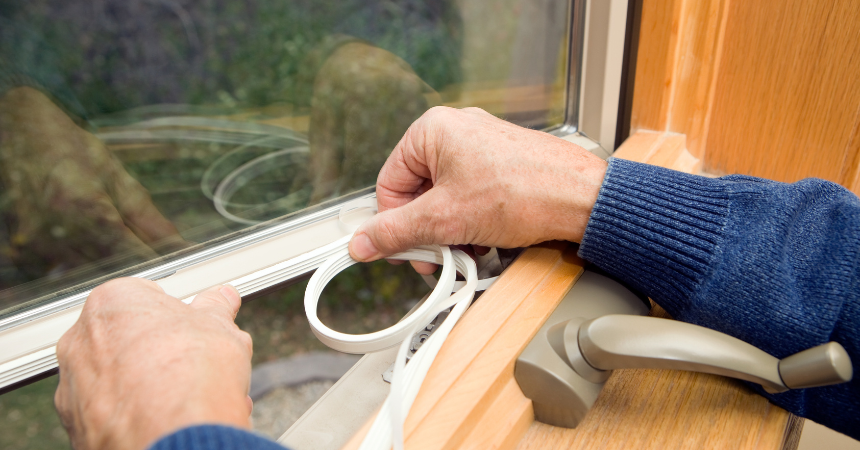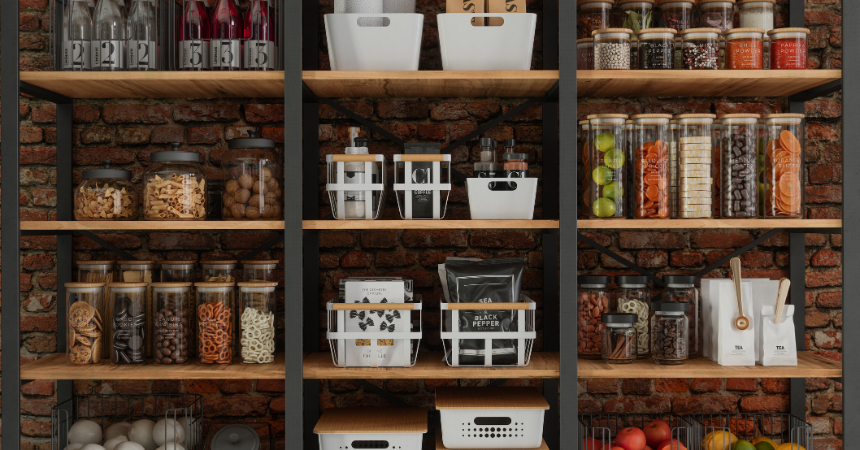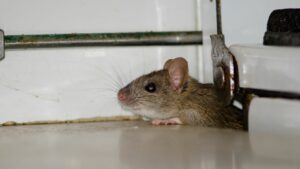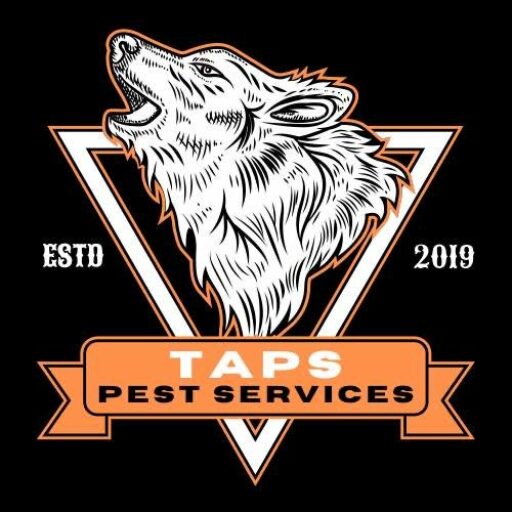- Read Time 6 min
Key Takeaways For Our Top Pest Control Tips
1. Seal and Sanitize to Stop Pests at the Source
Protect your home by sealing cracks, managing moisture, and maintaining a clean kitchen, pantry, and bathroom. These small actions create big barriers against common pests and rodents.
2. Florida’s Climate Demands Proactive Pest Control
With high humidity and warm weather year-round, home pest control in Florida isn’t optional—it’s essential. Stay ahead of infestations by partnering with experienced professionals.
3. Outdoor Maintenance Plays a Critical Role
Overgrown trees, poor drainage, and cluttered lawns invite everything from mosquitoes to termites. Yard care is just as important as indoor cleaning for keeping your home pest-free.
4. Taps Pest Control Delivers Safe, Proven Solutions
From natural remedies to targeted pest control treatments, Taps provides reliable, family-safe protection tailored to your needs. Trust a pest control company that knows Florida pests inside and out.
Living in Florida offers beautiful weather, tropical scenery, and year-round sunshine—but it also brings a constant battle against pest infestations. Due to the region’s high humidity and warm temperatures, Florida homes are especially vulnerable to insects, rodents, and other unwelcome guests. Whether it’s a trail of ants in your kitchen, a mouse scurrying in your attic, or cockroaches in your basement, every Florida homeowner faces pest-related challenges. That’s where Taps Pest Control steps in. Our expert team is here to help you identify, prevent, and eliminate pests before they take over your property. These tips provide actionable insights to maintain a clean, healthy home and stop infestations in their tracks.
Top Pest Control Tips
1. Seal Up Entry Points Around Your Home

Pests don’t need a front door—tiny openings are more than enough. Common access points include gaps in your roofline, chimney, window frames, or even areas where utility lines enter your home. Even small cracks or holes around the base of your home or garage door can serve as entryways for ants, spiders, mice, and bats. Use high-quality caulk, steel wool, or weather-resistant sealants to patch these vulnerabilities. Pay special attention to areas around plumbing, electrical fixtures, and ventilation, as they often provide hidden paths for pests. Preventing pests from entering is your first—and most critical—line of defense.
2. Keep Moisture Under Control
Excess moisture is one of the most attractive elements to pests like termites, cockroaches, spiders, mosquitoes, and rats. Leaky pipes, poor drainage, damp basements, and even overwatered plants can create an ideal environment for a wide range of pests. Use a dehumidifier in areas prone to humidity, like your bathroom, attic, and basement. Also, inspect your roof for leaks, clear out gutters, and ensure water is draining properly away from your foundation. Remember, malaria-carrying mosquitoes can breed in as little as a bottle cap of standing water. Proper moisture management is crucial for pest prevention and for maintaining your home’s structural integrity.
3. Store Food Properly in the Kitchen and Pantry

Your kitchen is a five-star buffet for pests if food isn’t stored properly. Open food containers, dirty dishes, and pet bowls can lure cockroaches, ants, beetles, mice, and rats. Invest in airtight containers for your grains, cereals, and pet food. Clean up spills and crumbs immediately—especially under appliances and in corners. Avoid leaving ripe fruit on countertops, and check your pantry regularly for signs of infestation like gnawed packaging or droppings. Even your pet’s food and water bowls should be cleaned daily. Sanitation and storage are key steps in controlling and preventing pests from turning your kitchen into their permanent home.
4. Clean Regularly Using Natural & Effective Solutions
Keeping a clean home goes beyond aesthetics—it’s a strategic move in home pest control. Vacuuming regularly with a powerful vacuum cleaner eliminates crumbs, pest eggs, and larvae from your carpet and floors. Steam-cleaning and mopping remove traces of scent trails that pests use to navigate. For eco-conscious homeowners, vinegar solutions and essential oils like peppermint offer natural deterrents—especially against spiders, mice, and ants. Spray peppermint oil around baseboards, entry points, and bathrooms for a fresh-smelling barrier. For more aggressive prevention, pair these natural methods with a professional pest control treatment tailored to your needs.
5. Trim Back Trees and Plants Near the House
Your beautiful garden, trees, and plants can unintentionally serve as highways for wildlife, insects, and rodents. Trim any branches that touch or hang over your roof, as they allow rats, squirrels, and even bats to access your attic. Thick shrubbery near the house gives pests a cool, shady place to nest. Additionally, avoid stacking firewood or compost piles directly against your home—both are notorious for harboring termites, spiders, and beetles. Keep your lawn mowed, use weed control to prevent overgrowth, and consider adding mulch barriers to limit crawling pests. A well-maintained landscape is a surprisingly effective pest prevention strategy.
6. Protect Beds and Furniture from Pests
Soft furnishings like your bed, couch, or upholstered chairs can become homes for bed bugs, fleas, or mites if not maintained. Vacuum mattresses and upholstery weekly, and wash bedding in hot water. Avoid placing luggage or backpacks on your bed or furniture, especially if you’ve recently traveled. Place mousetraps and bait traps in discreet areas like behind headboards or under beds to monitor activity. Pets should also be bathed regularly with flea treatments to avoid transferring insects into your sleeping areas. And remember, if you suspect a pest infestation in your bedroom, professional intervention is always the best solution.
7. Maintain Your Outdoor Spaces
Don’t overlook your lawn, garden, and exterior structures. Overgrown grass, dead leaves, and debris create ideal hiding places for insects, wasps, and rodents. Practice weed control, and keep bushes pruned. Remove moisture sources such as birdbaths, flowerpot trays, and clogged gutters. Regularly inspect outdoor furniture and play equipment for signs of spiders, ants, or mosquitoes. If you grow your own fruit or vegetables, harvest them promptly and avoid letting overripe produce attract flies and beetles. Trash bins should be tightly sealed, and pet food should never be stored or fed outdoors unless monitored. A clean yard helps control pests before they find their way inside.
8. Choose the Right Pest Control Treatment
Not all pests respond to the same approach. A pesticide that works for ants might be ineffective for rodents or termites. That’s why choosing the right pest control treatment is crucial. At Taps Pest Control, we tailor every treatment plan based on pest species, severity of infestation, and environmental factors. Whether it’s safe insecticide for indoor use or wildlife trapping and removal, we only use proven, family-safe products. We also educate homeowners on preventative maintenance for long-term protection. Relying on a professional pest control provider ensures the job gets done right the first time.
9. Know the Pests You're Dealing With
Identifying the species invading your home is vital for choosing the right control strategy. Are you hearing scratching in the attic? It could be a rat, bat, or squirrel. Tiny black ants in your kitchen? Likely sugar ants. Large winged insects near your wood siding? You may have a termite problem. Recognizing these patterns is key to solving the issue efficiently. Our expert technicians at Taps Pest Control are trained to identify all major home pests in Florida, ensuring quick diagnosis and resolution. Don’t waste time with guesswork—go straight to the pros.
10. Partner With a Trusted Pest Control Company
DIY efforts can only go so far. For true peace of mind, rely on a pest control company like Taps Pest Control. We specialize in comprehensive pest control solutions, providing long-term protection for your home, family, and even your pets. With a deep understanding of Florida’s pest challenges, we offer fast, effective, and eco-friendly services tailored to your situation. From sealing off entry points to monitoring for seasonal infestation, our certified experts deliver unmatched care. Whether you’re fighting insects, rodents, or invasive wildlife, we’ll help you take back your home.
Ready to protect your home the smart way?
👉 Schedule Your Free Inspection with Taps Pest Control Today!
We’ll identify the problem, provide targeted treatments, and help you maintain a safe, pest-free environment—because your peace of mind matters.
Table of Contents
Additional Resources

Effective Pest Control Tips From Taps Pest Control
Are you tired of dealing with unwelcome visitors like insects and rodents in your home? Pest infestations can quickly turn your space into a stressful environment, especially if they take over areas like the attic or kitchen. In this guide, we will share effective pest control tips to help you keep your kitchen free of pests, ensure bathroom sanitation, and prevent stagnant water accumulation. By following these tips, you can create a healthier and safer home while reducing the risk of future infestations from cockroaches and other pests.

Ultimate Pest Control Tips for Florida Homeowners: How to Stop Infestations Before They Start
Tired of insects, rodents, and pests invading your Florida home? Discover expert pest control tips from Taps Pest Control to stop infestations before they start.

Spring Pest Control in Florida: Pest Prevention Tips
Get ahead of the season with expert spring pest control in Florida. As temperatures rise, so does pest activity—especially ants, termites, and mosquitoes. Learn how to protect your home with inspection tips, prevention checklists, and professional solutions from Taps Pest Services.
Frequently Asked Questions:Top Pest Control Tips for Florida Homeowners
Seal cracks with caulk, use traps, reduce moisture with a dehumidifier, and call a professional pest control service like Taps for a complete inspection.
Yes. Vinegar and peppermint oil can help deter insects and rodents, but they’re most effective when combined with regular cleaning and professional treatments.
Call a pest control company immediately if you notice droppings, chewed wires, visible pests, or unexplained damage. Early intervention prevents larger infestations.
Absolutely. Pests like cockroaches, rats, and mosquitoes can carry serious diseases, including salmonella, hantavirus, and malaria. Quick action is critical.
High-risk areas include the kitchen, bathroom, attic, basement, pantry, and places near water, pet food, or carpeted areas.



